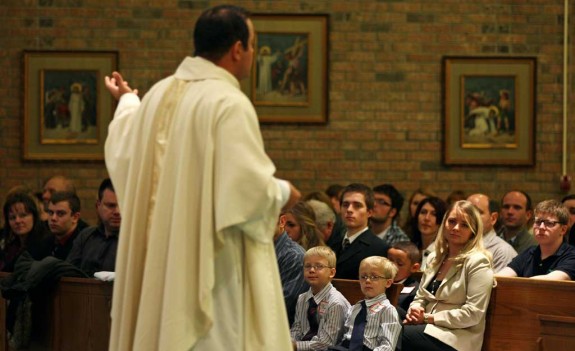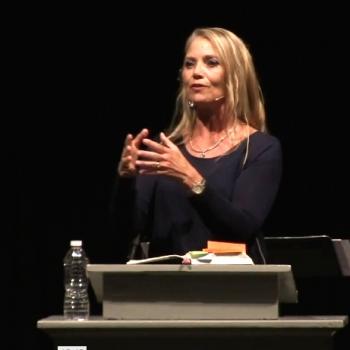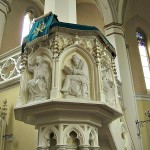Here’s one writer who thinks its importance is being overestimated—and we have Vatican II to thank (or blame).
So, how important is the homily at Holy Mass? It depends on who you ask.
If you pose the very same question to a Catholic who is fortunate enough to regularly assist at the Traditional Latin Mass, the answer you’ll likely receive is that it’s not very important at all. And guess what? Objectively speaking, it’s not.
Now, that’s not to say that the homily is entirely irrelevant. Even the Council of Trent recognized the great opportunity the sermon represents for pastors to expound upon “some portion of those things which are read at Mass, and explain some mystery of this Most Holy Sacrifice, especially on the Lord’s days and festivals.” (cf Council of Trent, Session XXII, Doctrine on the Holy Sacrifice of the Mass, Ch. VIII)
That being said, the homily, in the scope of the sacred liturgy as a whole, is not terribly important, which is precisely why it is optional in the traditional rite, and may be omitted on weekdays even in the Novus Ordo.
So, why do so many Catholics today tend to vastly overestimate the homily’s importance?
In short, this phenomenon is nothing more than the bitter fruits of the protestantization of the Mass that took place following Vatican Council II.
Let’s be honest, there is scarcely a Catholic among us who will deny that their experience of the new Mass, as most typically celebrated (facing the people), is heavily influenced by what I call “the liturgical persona” of the priest-celebrant.
For example, when Mass is offered by a priest who effectively manifests a true love for the Lord and His people – not simply through the homily, but throughout the entirety of the rite, whether by the expressiveness of his intonations, the eloquence of his gestures or by some other means – it is not uncommon for the faithful to experience a certain “connection” and a sense of joy that is due in no small measure to the pious feelings that the priest himself aroused within them.
The converse, of course, is also true as one’s experience of Holy Mass is often impacted in a negative way by a priest who lacks the charisma, and dare we say the “stage presence,” of the aforementioned other, a “shortcoming” often made most evident in the course of a bland, uninspiring homily.
The common thread in both of these examples is the “performance driven” dynamic that features so prominently in the newly configured rite, something that is utterly foreign to the Holy Sacrifice of the Mass as offered according to the usus antiquior, wherein even the worst of homilies can do little to rob the rite of its transcendent grandeur.
His criticism, of course, is almost entirely performance-based, and doesn’t really address some other homiletic problems that may also be keeping people out of the pews: homilies that are short on substance or unfocused; preaching that simply restates the gospel, with personal asides passing for commentary; sermons that are tediously dull or pedantic; or analysis that fails to connect the scripture in any meaningful way with the real lives of the people.
From my experience, folks want to be challenged, inspired, moved, educated, or enlightened. A preacher can be a lousy speaker and have zero performance skills. But if he has something meaningful to say, and a message he needs to impart, that’s more than enough.
People are starving. They want to be fed.












